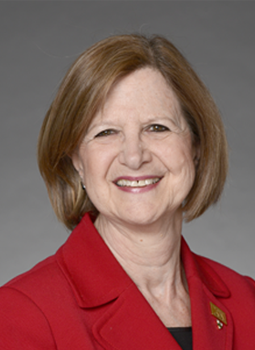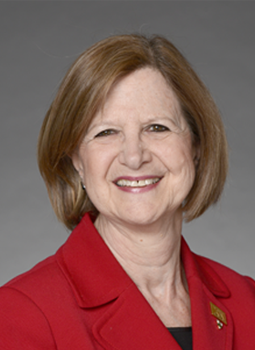When I joined RNAO almost 30 years ago, I made a commitment to draw on evidence in everything we do as a professional association. Whether it’s excellence in clinical practice, healthy workplaces, healthy public policy, educational resources, or media engagement – every aspect of our work is built on strong and compelling evidence.
You may wonder why.
Nursing has always been known as a caring profession. To build nursing as both a caring and knowledge profession – and to position RNAO as a scholarly organization that propels this – robust and respected evidence is the foundation. And that has been our path.
On this milestone 25th anniversary of the BPG program, we can look back at that path.
The idea for the Best Practice Guidelines (BPG) Program was formed when I was a director of nursing at Toronto’s Mount Sinai Hospital (now Sinai Health). From 1990 to 1996, I led for the hospital a solid journey of evidence-based practice alongside our frontline colleagues. Then, in 1992, the Pan American Health Organization, which is part of the World Health Organization, asked me to lead the development of centres of excellence for rehabilitation (my clinical area of expertise) based on evidence. It was only natural that when I moved to RNAO, I was determined as executive director to expand these experiences into opportunities for all.
Transforming Nursing Through Knowledge (published in 2018) is our detailed account of the evolution of the BPG program – and of how evidence forms its foundation. In the concluding chapter, we argue that evidence is crucial to our work, but it cannot stand alone. It must be anchored in values and the courage of nurses and nursing students to speak out about its impact.
At RNAO, we refuse to let BPGs gather dust on shelves. Our approach integrates evidence into implementation science frameworks, powering current and future nurses to be change agents and to engage persons (patients/clients/residents) to understand how evidence-based and compassionate practices improve their care and outcomes. Thanks to tools like Nursing Quality Indicators for Research and Evaluation® (NQuIRE®) and MyBPSO, we measure outcomes and provide practitioners and system leaders with real-time insights for rapid learning and continuous quality improvement. This philosophy, rooted in the three pillars of development, implementation and evaluation, has been the cornerstone of the BPG program since its inception with provincial government funding in 1999.
Whether you have been involved with a BPG, worked with a BPSO, acted as a panelist, external reviewer, or international champion – we would not be where we are today without you.
My vision for the program was just that, a vision. It came to fruition through our collective work, involving – then and now – the participation of hundreds of thousands of people. Whether you have been involved with a BPG, worked with a BPSO, acted as a panelist, external reviewer, or international champion – we would not be where we are today without you.
And there’s the expert RNAO staff. For more than two decades, we have attracted superb talent to the program, including nurses, statisticians, social scientists, AI experts, communications and information management and technology professionals, and more. Nurses who work at RNAO must have a master’s degree and several hold a PhD. And, we have exceptional coordinators whose logistical acumen ensures we deliver BPG after BPG.
We are grateful to the provincial government for its unwavering support. Premiers, ministers, deputy ministers, civil servants, and our amazing provincial chief nurse officers – present-day and over the last quarter century – thank you for believing in us. Together, we deliver. And yet our work is not done.
We cherish and take pride in our accomplishments and continuously look to the future. As champions of change, we search for what is new. And when we don’t find what we’re looking for, we create new paths. Such is the case with the forthcoming anti-Black racism BPG (read more on page 34) and the Leading Change Toolkit.
We are continuously growing as professionals and as an association. What we contribute to clinical and organizational practices, policy and science today is so much more than anything I envisioned.
What remains unchanged are our values and the anchoring in those values of person-centred care and health for all. This makes a difference for persons in all settings and sectors, their loved ones, and communities – regardless of the country they call home. Our impactful work matters to nurses, nursing students and other professionals because it matters to the people we serve.
We know this to be true because the outcomes show this. And we need no further proof to keep growing on this important path.

